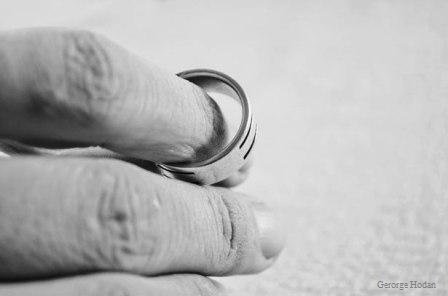 Divorce can be one of the most painful traumas in a person’s lifetime. It’s hard on both spouses, but especially if you feel “left,” replaced, or it comes as a surprise and you’re less prepared. Aside from the ending of the relationship with your mate, divorce can shatter your sense of identity as a wife or husband, and possibly as a mother or father. Fortunately, there is hope and professional divorce counseling can help.
Divorce can be one of the most painful traumas in a person’s lifetime. It’s hard on both spouses, but especially if you feel “left,” replaced, or it comes as a surprise and you’re less prepared. Aside from the ending of the relationship with your mate, divorce can shatter your sense of identity as a wife or husband, and possibly as a mother or father. Fortunately, there is hope and professional divorce counseling can help.
Additionally, the losses of divorce may include losing your home, time with your children, in-laws, extended family, and even friends. You’re robbed of a future and thrust into an unknown world of living single, left with fantasies of what might have been and reminders of your life as a family – particularly on holidays.
Of course, there are lifestyle changes, financial losses, and loneliness. Some spouses move to a different city, change of jobs, or begin working for the first time. One of the most painful feelings is guilt about the effect on your children or if you feel your actions precipitated the divorce. Some people experience deep shame that they’re failures, particularly if divorce is seen as a stigma in their culture or religion and among their friends and relatives.
On the other hand, divorce can be a liberating and transformative experience. The Chinese ideogram for crisis represents both danger and opportunity. It opens your world to the possibility of new experiences, developing autonomy, and the opportunity to meet as yet unknown parts of ourselves. Doing this requires consciously understanding the relationship dynamics in your marriage and working through the five stages of divorce and loss to arrive at self-forgiveness and acceptance of your new reality. It also may entail learning new skills, such as parenting after divorce, setting boundaries, and dating after many years.
Emotional Unbonding
The legal and physical separations are stressful, but the most difficult challenge is the emotional unbonding of the attachment, dependency, and all patterns of relating between you and your spouse. These patterns are what make you react to one another, often in destructive ways. Even if you initiated the divorce or no longer love your ex, this is an important step in letting go and moving on. Working through them sometimes involves healing old wounds of rejection, loss, abuse, shame, or habits of controlling, people-pleasing, or caretaking. Failure to successfully traverse this stage can keep you connected and stuck in your life, or cause you to partner with someone new and repeat the same dysfunctional patterns. To learn more about overcoming the pain of rejection, and get tips for letting go, see “Recovery from Rejection and Breakups.” Listen to my seminar Breakup Recovery and interview on moving on after divorce.
Divorce Counseling
Getting support is vital during this time. Seek out friends and family who are supportive and not meddling or critical. Attend groups, such as CoDA, Divorce Anonymous, Parents Without Partners, and New Beginnings. They provide both support and a social network. Individual counseling can help you navigate the “Do’s and Don’ts of Divorce” and provide an understanding of yourself and interactions with your ex and a safe place to grieve. You will learn new behavior and communication skills to deal with new challenges in constructive ways that facilitate unbonding and speed the process of moving on.
© Darlene Lancer 2016


